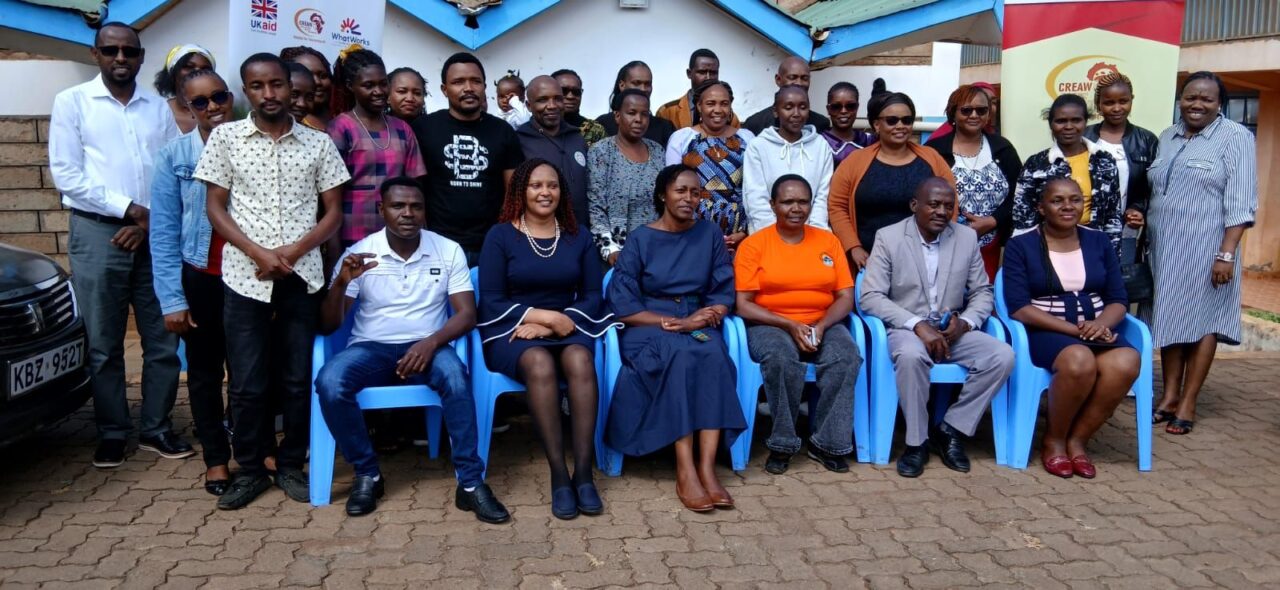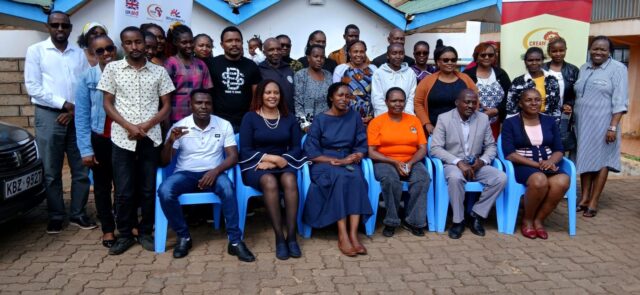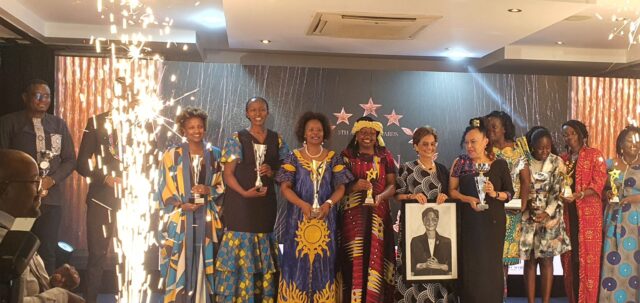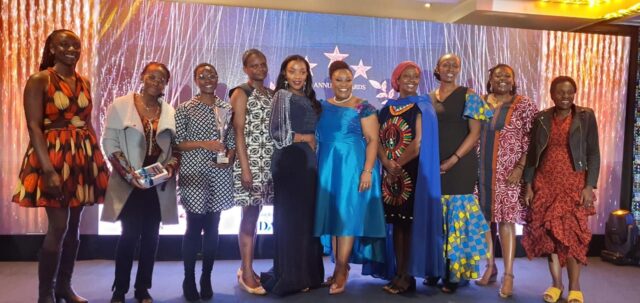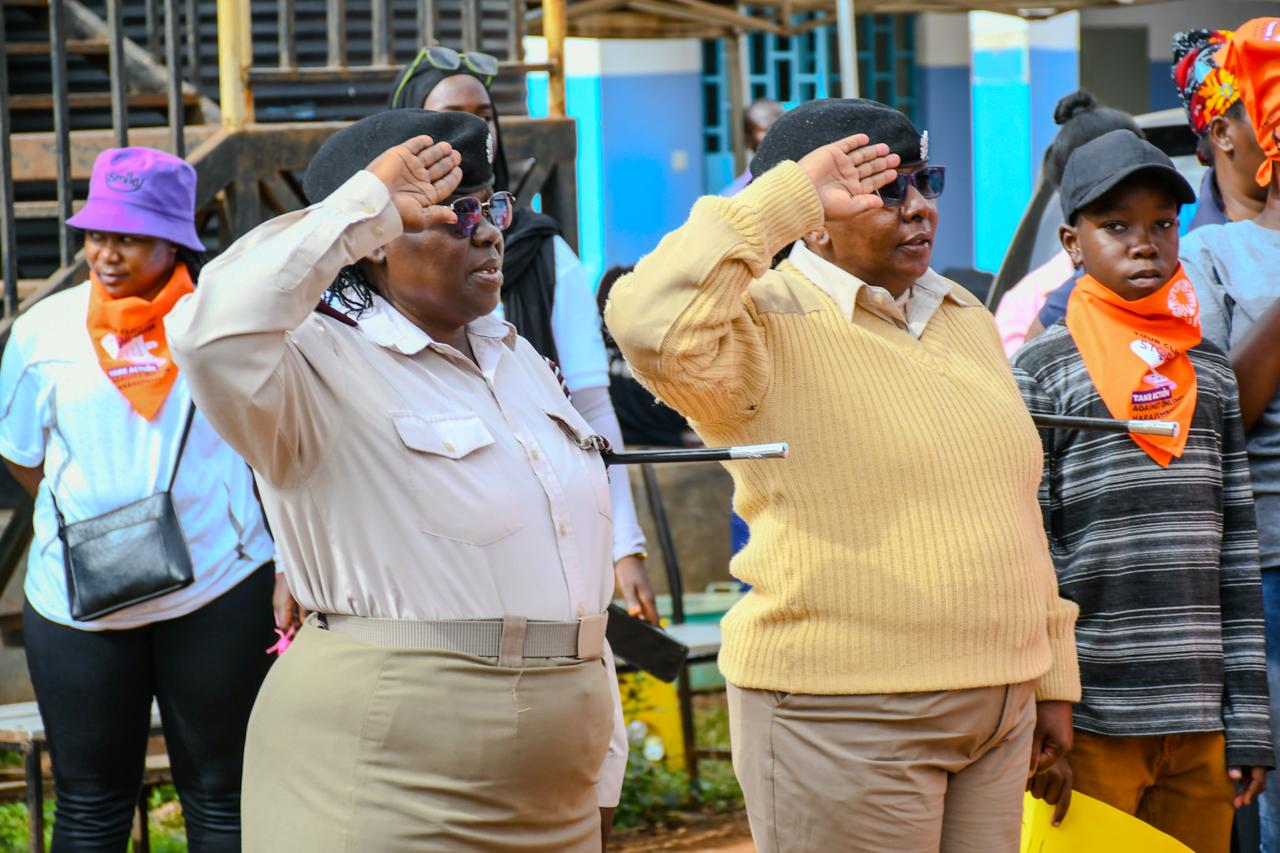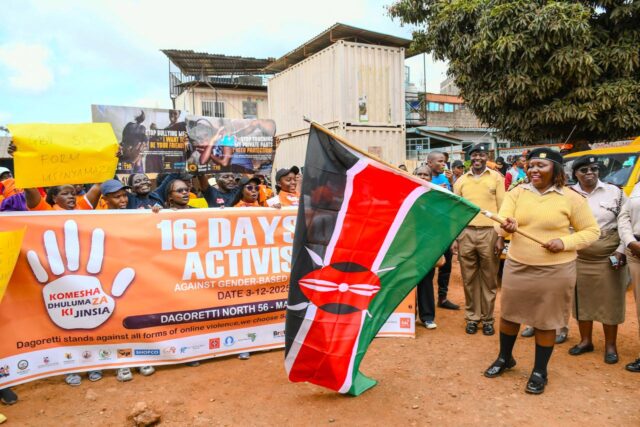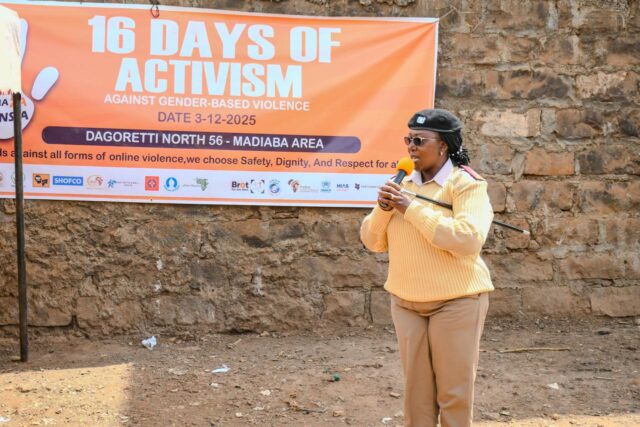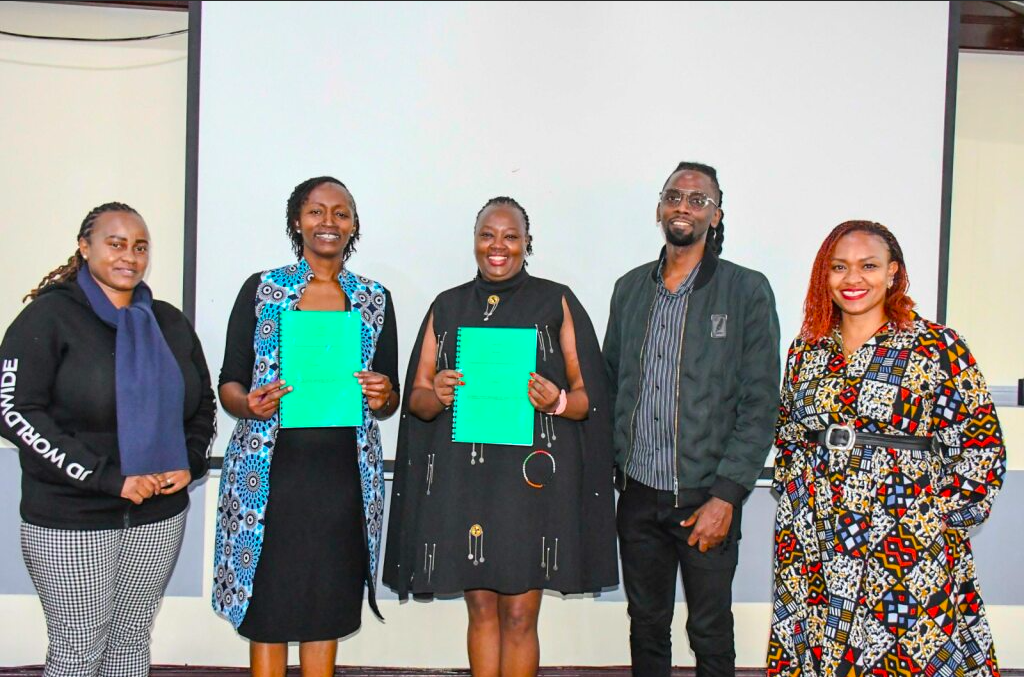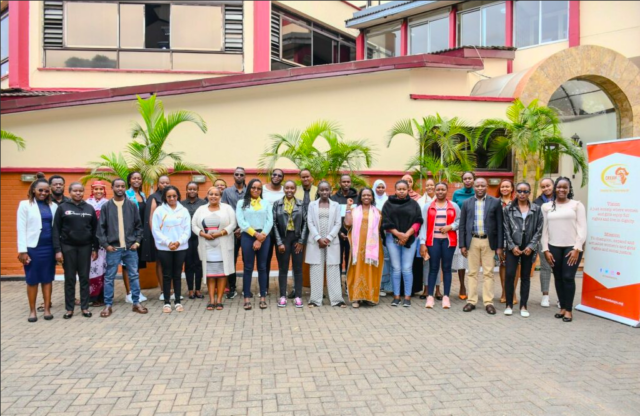
Justin Nasimiyu, a mother and resident of Kibra, has walked a challenging path as a survivor of gender-based violence (GBV). Her journey is one of courage, reflection, and starting anew.
For years, Justin endured a painful marriage with a violent, alcoholic husband. He not only disregarded her feelings but also brought another woman into their home to humiliate her in front of their children. Justin faced daily beatings, insults, and was left to raise her children alone, as her husband support the needs of the family. “I lived through pain every day, but no one seemed to notice. I had to carry the burden alone,” she recalls quietly.
One day, Justin realized she couldnt continue living like that. After deep reflection, she made the brave decision to walk away and take her children with her. Leaving was not easy, but she knew she had to do it for herself and her children.
A close friend who witnessed Justin’s struggles introduced her to CREAW, where she was enrolled in the Jasiri Program. This connection transformed her life. Through Jasiri, Justin received counseling that helped her begin to heal from the emotional pain she had carried for so long. She also participated in financial literacy training, learning essential skills for managing her business. She was taught the importance of pursuing her passions, saving money for personal use, business, and emergencies, as well as keeping accurate records of every coin earned and spent.
“Before Jasiri, I didn’t know how to manage anything. I was just surviving, but they taught me how to plan for my life and my future,” she expresses.
After completing the training, Justin received a grant that enabled her to open her own salon business. From that moment on, her life started to improve. Today, Justin can comfortably pay school fees and provide food for her children, allowing her to support her family without the daily struggles that once weighed her down. “I now feel proud when I can meet my children’s needs without begging or waiting for someone to step in,” she says with a soft smile.
Justin is deeply grateful to Jasiri for giving her the opportunity to rebuild her life. “Jasiri came through for me in a way my friends and family could not. They helped me when I had no other way out,” she shares sincerely.
The difference between her past and present is stark; she has gone from days filled with pain and fear to days filled with hope and growth. She now has the strength to support her children even when they face challenges in school.
“To all the women going through the same thing, don’t sit in silence, waiting for friends or family to save you. Look within yourself and ask the hard questions. Staying too long in suffering can destroy you in the end,” she advises. Justin encourages women to share their stories and seek help from people and organizations that can genuinely support them.
Justin is thankful to Jasiri for pulling her out of a life of pain. She hopes Jasiri will continue to encourage and support her as she raises her children and builds her life.
The Jasiri Program aims to enhance the resilience of GBV survivors, increase their participation in economic opportunities, and shift social norms to create an enabling environment for them to thrive in the world of entrepreneurship and work. The program is implemented by a consortium comprising Centre for Rights Education and Awareness (CREAW), Grassroots Organizations Operating Together in Sisterhood (GROOTS Kenya), Collaborative Center for Gender and Development (CCGD), Centre for Domestic Training and Development (CDTD) and Advocates for Social Change Kenya (ADSOCK in partnership with the Mastercard Foundation.

